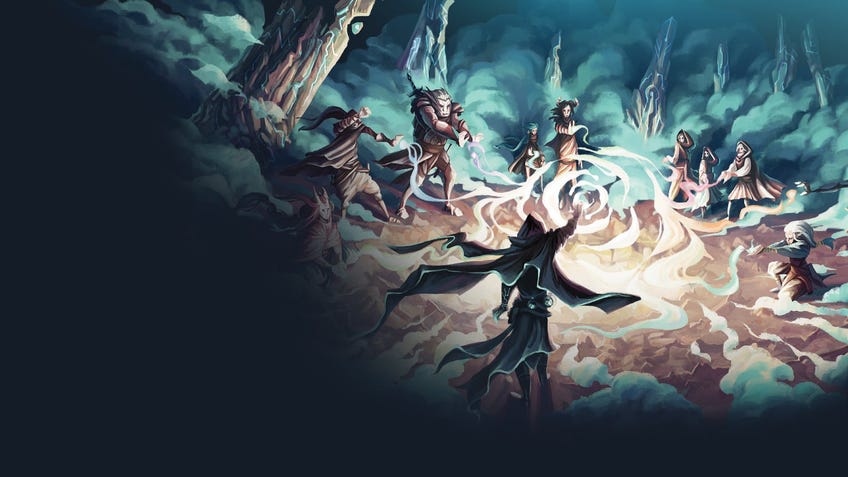Cortex Prime’s second pass at a community licence directly addresses public criticism
The new document explicitly states who does - and does not - own fan-created content.
Nearly four months have passed since Cortex Prime revealed two new creator licences and caused a critical backlash among its players and other tabletop RPG designers. A revised second version was published on March 29th and states the design studio’s goals in much clearer language.
The publisher of the modular RPG system announced a pair of licences - one for fan-created works and another for commercial creations - on November 30th via the Kickstarter campaign page for the core rulebook. The post explained that the legal documents were the first part of building an inclusive creator ecosystem that would live on a yet-unreleased Cortex Prime digital platform where amateur designers would share and ostensibly sell their games.
Many within the Kickstarter comments, and more broadly online, pinpointed vague language and a lack of clarity around ownership of anything created under the community licence. Pessimistic readings worried Fandom would claim ownership of its community’s work or otherwise scalp lore, characters and rules to be published in official books or supplements in the future. Others scoffed at a paragraph that seemed to imply Fandom legally owned not only Cortex Prime’s game mechanics but any devised under the community licence, as well.
The Cortex Prime Non-Commercial Licence V 2.0 addresses these and other concerns via an FAQ from Fandom Tabletop community manager Mellie Doucette. It explains that the “expression of rules” will be shared by anyone else using the non-commercial licence - “your game, product, text, and all of your ‘IP’ (names, places, situations, stories, lore, art, and fiction) remain your own,” according to the document. The example provided is a modification of Cortex Prime’s Doom Pool mechanic, called Storm Pool in the document, which can be lifted out of a game by another designer if they feel it fits their own intentions.
If a creator believes that a mechanic or rule - called “mods” in Cortex Prime’s parlance - they can take advantage of a clause in the non-commercial licence to claim it is too closely tied to their intellectual property to be shared. Doucette explained this isn’t a copyright on game mechanics but instead protects a specific expression of rules text that relies on a game’s lore or setting. For example, the Dark Magic from the newly released Tales of Xadia RPG draws heavily on The Dragon Prince’s worldbuilding and will thus be excluded from the rules added to the Cortex Codex collection planned for later this year.
A section has been added detailing an individual’s ability to list games, mods, hacks and other creations on Itch.io, Google Drive, Patreon and other websites. While anything made under the non-commercially licence must be available for free, this new version carves out exceptions for tip jars and pay-what-you-want options - features that are often baked into the infrastructure of the most popular community platforms.
Doucette said this clause and other clarifications arose from working directly with the Cortex Prime and Fandom Tabletop Discord mods, many of whom are game designers and fan creators who were critical of the first licences language.
“Until the Cortex Creator Studio comes out, our licence didn’t play very nicely with a lot of these distribution channels, including Google Drive or even local print shops,” Doucette said in an interview. “Now, you can go ahead and distribute your content on something like Itch.io, or you could upload it to Google Drive and distribute it for free that way. You can go to your local print shop, print out 20 copies of your thing and go to a con and hand them out to people.”
Doucette expressed personal regret over the initial reaction to the licences, saying her eagerness to show the public what they had been working on overshadowed their ability to tighten the language and eliminate any vagaries. The second version has again been made available to the public before the Cortex Creator Studio - the future digital home of fan creations using the Cortex Prime system - is finished. Doucette said the obligation to assure their community and let them know the company’s intentions align with their needs was too important to wait.
When asked whether fan content will necessarily have to be delisted elsewhere to live on the Cortex Creator Studio - and thus earn potential profit - Doucette wasn’t sure how the legality will shake out. That lingering question points to what she hopes is a flexibility on Fandom and Cortex’s part regarding the community and its relationship to these new licences - if the community raises more criticism, she hopes they feel Fandom will answer swiftly and in their best interests.
“We're not just throwing this licence out and then dropping it and turning to something else,” Doucette said. “I'm absolutely going to be paying attention to how people react in the immediate term, obviously, but also in the long term. How does it grow and change? How do we grow and change?”

